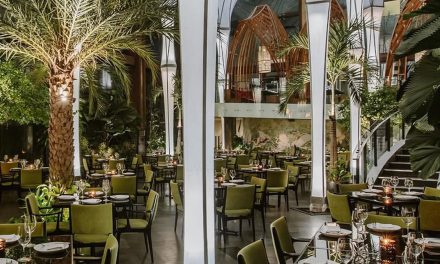Nestled in the heart of Bali, Ubud is often regarded as the spiritual and cultural center of the island. With its lush rice terraces, vibrant arts scene, and commitment to sustainability, Ubud is a haven for eco-conscious travelers seeking authentic experiences. If you’re looking to immerse yourself in the rich cultural tapestry of this magical place while keeping your carbon footprint in check, you’re in the right spot. Let me take you on a journey through some of the best eco-friendly cultural experiences Ubud has to offer, sprinkled with personal anecdotes and practical advice to make your trip unforgettable.
Embrace the Spirit of Eco-Tourism at the Sacred Monkey Forest
My first stop upon arriving in Ubud was the Sacred Monkey Forest Sanctuary. This enchanting park is home to hundreds of playful long-tailed macaques, but it’s more than just a wildlife haven. The forest is a sacred site, featuring ancient temples and lush greenery.
While wandering through the pathways lined with massive stone statues and towering trees, I was reminded of the importance of harmony in nature. Like many visitors, I was initially thrilled to observe the mischievous monkeys, but I quickly learned to respect their territory. An amusing incident occurred when a little monkey stealthily snatched a snack from my backpack—I had to laugh at the cheekiness!
Pro Tip: When visiting, be mindful of your belongings. Don’t carry food and keep your bags zipped to avoid surprise monkey encounters. The best part? A portion of the entrance fee supports the forest’s conservation efforts, so you’re contributing to the ecosystem as you enjoy the sights.
Discover Traditional Balinese Cooking Classes
Another delightful way to connect with the local culture is through a cooking class, but not just any class—go for one that emphasizes organic ingredients and sustainability. I signed up for a session at a family-owned culinary school where we not only cooked but also harvested fresh veggies from their organic garden.
As we chopped our ingredients—aromatic lemongrass, fiery red chilies, and fragrant turmeric—I felt a connection to the land and the farmers. The instructor shared stories about each ingredient, from sustainable sourcing to traditional healing properties. It became clear that food in Balinese culture is not merely sustenance; it’s a cherished connection to the earth.
Cooking Tip: Don’t skip the spice market visit typically included in these classes. It’s a sensory overload of colors and scents! Plus, always ask about the sources of the spices; supporting local farmers is key to eco-friendliness.
Engage with Local Artisans
Ubud is renowned for its arts and crafts, and supporting local artisans is a wonderful way to experience the culture while being eco-conscious. I spent an afternoon visiting various workshops, from batik painting to silver jewelry making. Each artisan had a story, often passed down through generations, about their craft.
At one workshop, I met an elder who taught me the intricate art of weaving baskets from bamboo. His passion for sustainable practices was infectious. We only use what the earth provides, he said, as he delicately wove together thin slivers of bamboo. By buying from him, I didn’t just get a beautiful handmade piece but also supported sustainable livelihoods.
Buying Tip: When purchasing art or handicrafts, always look for locally made items. Not only are they usually more eco-friendly, but you’ll also be helping to preserve the local culture and crafts.
Experience Traditional Balinese Ceremonies
If you’re fortunate enough to be in Ubud during a temple ceremony, don’t miss the opportunity! One evening, I stumbled upon a colorful ceremony at a local temple. The atmosphere was electric, filled with the sound of gamelan music and vibrant offerings made from flowers, rice, and banana leaves.
What struck me wasn’t just the visual spectacle but the deep spiritual connection the Balinese feel with their ceremonies. Participating as an observer, I was welcomed by the community with open arms. It was a beautiful reminder of how culture and environment intertwine, as many ceremonies involve prayers and offerings to maintain harmony with nature.
Participation Tip: Always be respectful and ask permission before taking photos. Some ceremonies are very sacred, and the locals appreciate it when visitors honor their traditions.
Rejuvenate with Eco-Spas
After all that exploring, I found bliss at an eco-spa, which focused on natural treatments using organic ingredients sourced from the local community. Settling into a bamboo treatment room surrounded by rice fields, I could feel the stresses of travel melting away.
The massage oil was a delightful concoction of coconut oil and locally sourced essential oils. My therapist explained how each ingredient was selected for its healing properties, emphasizing the importance of connection to the earth. It was a moment of pure relaxation encapsulated in Ubud’s stunning natural beauty.
Spa Tip: Look for spas that use natural, biodegradable products and have eco-certifications. You deserve to pamper yourself while also being kind to the environment!
Conclusion: Eco-Friendly Adventures Await
Ubud is more than just a destination; it’s an experience that allows for connection—with nature, culture, and the vibrant community. By choosing eco-friendly cultural experiences, you not only enrich your travel but also contribute positively to the environment and the lives of the locals.Embrace each moment in Ubud with an open heart, and you’ll find that it’s not just about what you see, but also about the stories you gather along the way. So pack your bags, and remember: every step you take in Ubud can be a step toward sustainability!






